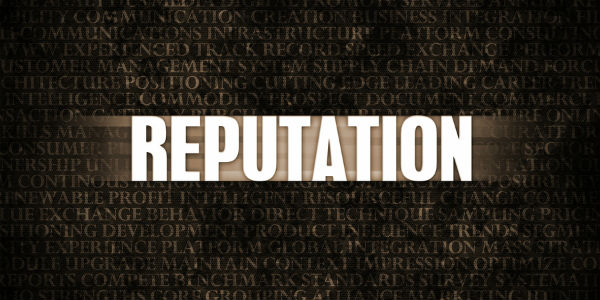Don’t blink: It takes just that long to lose your good name in a crisis

Gone in an instant.
Companies take years to build a favorable reputation. But it can quickly crumble when they aren’t prepared for the unexpected.
Want proof? Take a look at the struggles Target and Neiman Marcus are facing in the wake of the largest data breaches in history. And after controversial apologies, will former Food Network chef Paula Deen ever regain a positive brand? But lest we think otherwise, reputation crises don’t just affect big corporations or the rich and famous. Financial services providers have topped the list of industries experiencing major reputation crises every year for the past 25 years. Closer to home, credit unions experienced hundreds of fraud cases in 2013 – one, the Taupa Lithuanian Credit Union, caused the fear of “guilt-by-association” reputation damage for many Ohio credit unions.
Business crises happen, and they can quickly hurt your organization. And no business – regardless of size, location or specialty – is immune. Beyond business continuity planning, it is essential for all credit unions to have a Crisis Communication Plan.
Preparation is vital for issues that threaten one’s reputation. By having a sound Plan in place, your credit union can mitigate the publicity damage caused by negative events, as well as better manage a crisis in process. A Crisis Communication Plan will guide decision making and help avoid mistakes, while keeping staff focused and able to address the most important issues minute by minute. Among the components for an effective Plan, consider the following:
- Message platform – Having a “message platform” in place before a crisis occurs offers a solid base to stand on, as the term implies. Use simple, declarative sentences that offer your credit union’s central mission, goals and philosophy. The platform should include words (planks) that associate it with its core mission, while also describing how you wish to be perceived (e.g., “safe,” “reliable” or “strong”).
- Clear staff roles and responsibilities – It’s vital to know “who does what” when a business crisis breaks out. Keep the crisis communication team relatively small for quick response, with alternates designated for each role. Then, use subject-matter experts to supplement the team, as needed. For example, if the crisis involves a data breach, include compliance and operations/IT staff who understand the situation and can help shape message strategy.
- Immediate action plan – A crisis can often be brewing for awhile; but when it occurs, it is usually surprising, sudden and ambiguous. When negative news is about to break, your organization needs to be out in front of it. It may take a while to sort out all the facts, but quick action and responsive messages are imperative as events are unfolding. By having an open, candid communication strategy, you can demonstrate that your organization is on top of the issue and committed to resolving it.
Given today’s 24/7 news cycle – and how quickly bad news and rumors can spread – developing a Crisis Communication Plan should not be taken lightly. A crisis stretches resources and causes considerable stress to employees trying to handle it. It’s often helpful to call in professionals for assistance.
While no plan can cover every possibility, a well-prepared Crisis Communication Plan provides the strategies, action steps and sample materials needed to communicate under trying conditions. The Plan also should be regularly tested and updated.
To make your Crisis Communication Plan most valuable, it should:
- Provide tools for identifying issues that may escalate, so your credit union can make adjustments where possible and mitigate or avoid crisis and reputation damage.
- Recommend a chain of command process to quickly gain approval for your message strategy and communications, ensuring the ability to respond quickly and methodically.
- Introduce evaluation methods to help access your credit union’s preparedness to manage crisis communication and improve processes as needed.
- Present communication strategies and possible scenarios with model positions and messages.
Every organization – large or small – should prepare for the unthinkable by having a comprehensive, well-thought-out Crisis Communication Plan. Financial institutions, like credit unions, are especially vulnerable to reputation risk because consumers trust them with their financial lives. Even minor image problems can cause a loss of confidence. For most, it isn’t a matter of if but when our institution will face a business crisis. For credit unions, it’s never been more valuable – or critical – to have a Crisis Communication Plan in place to protect and defend your reputation.

